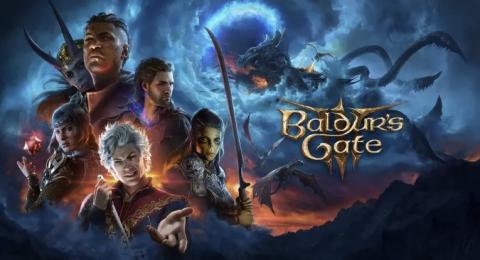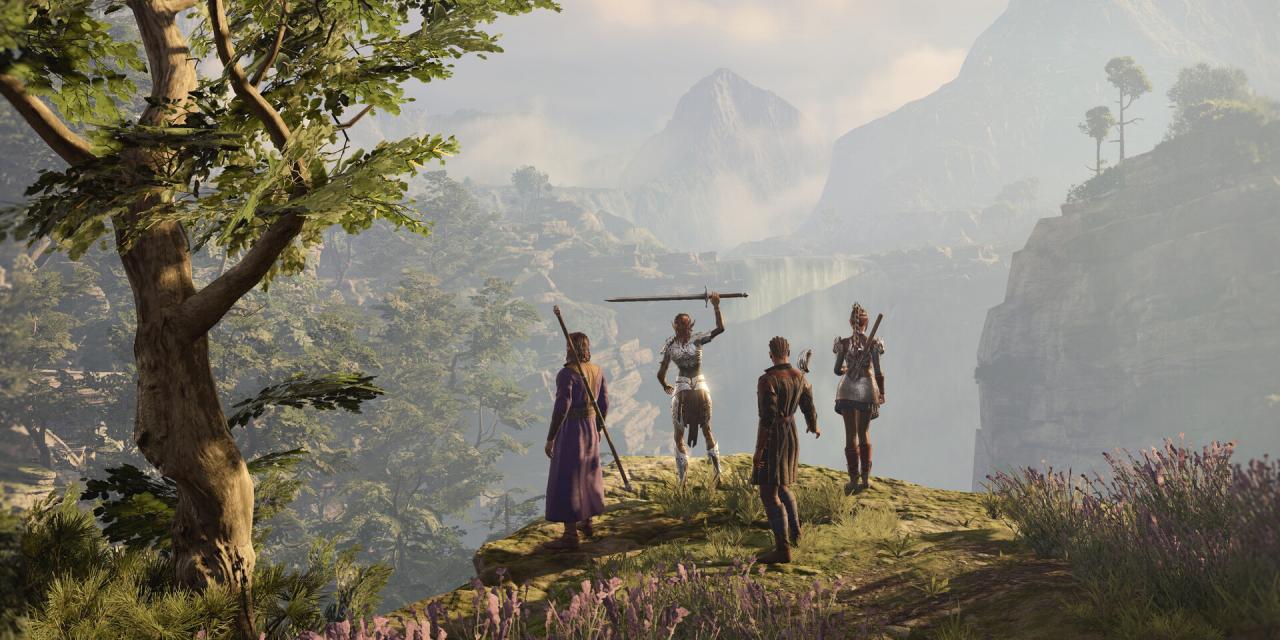
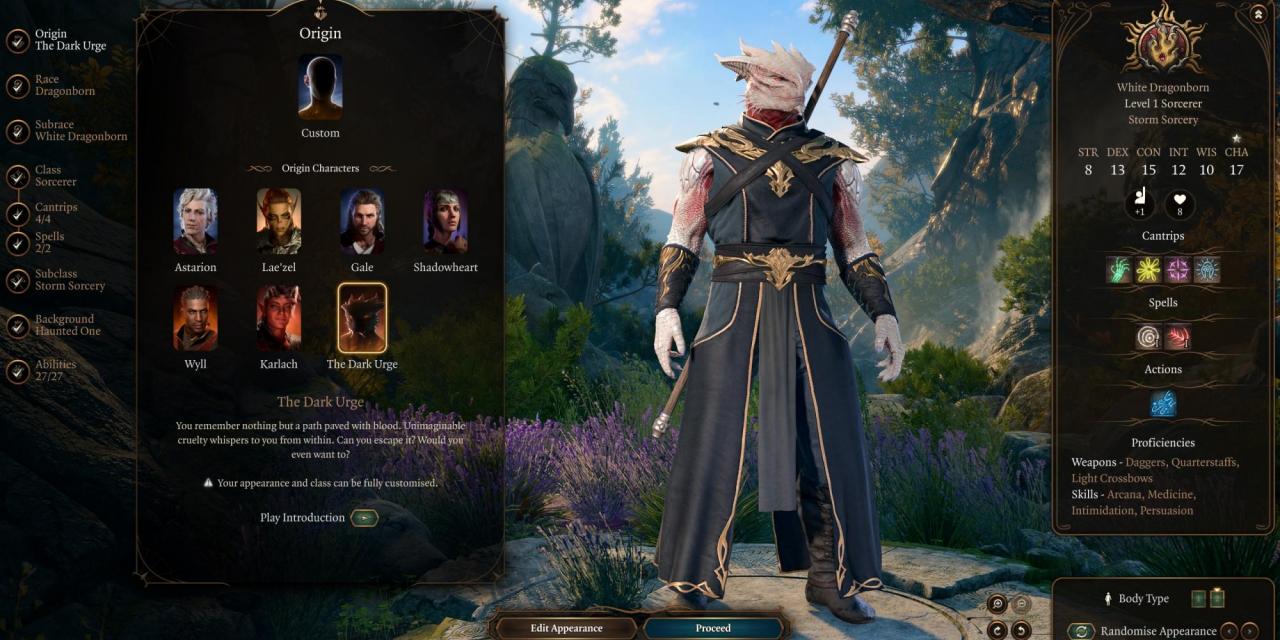
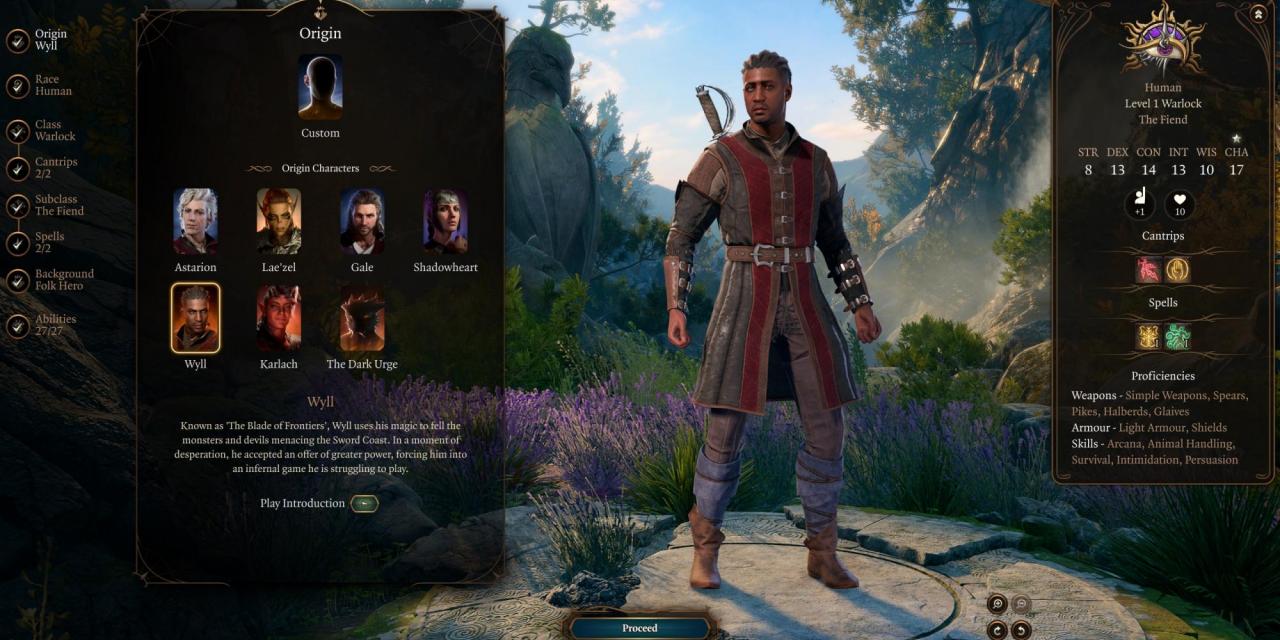

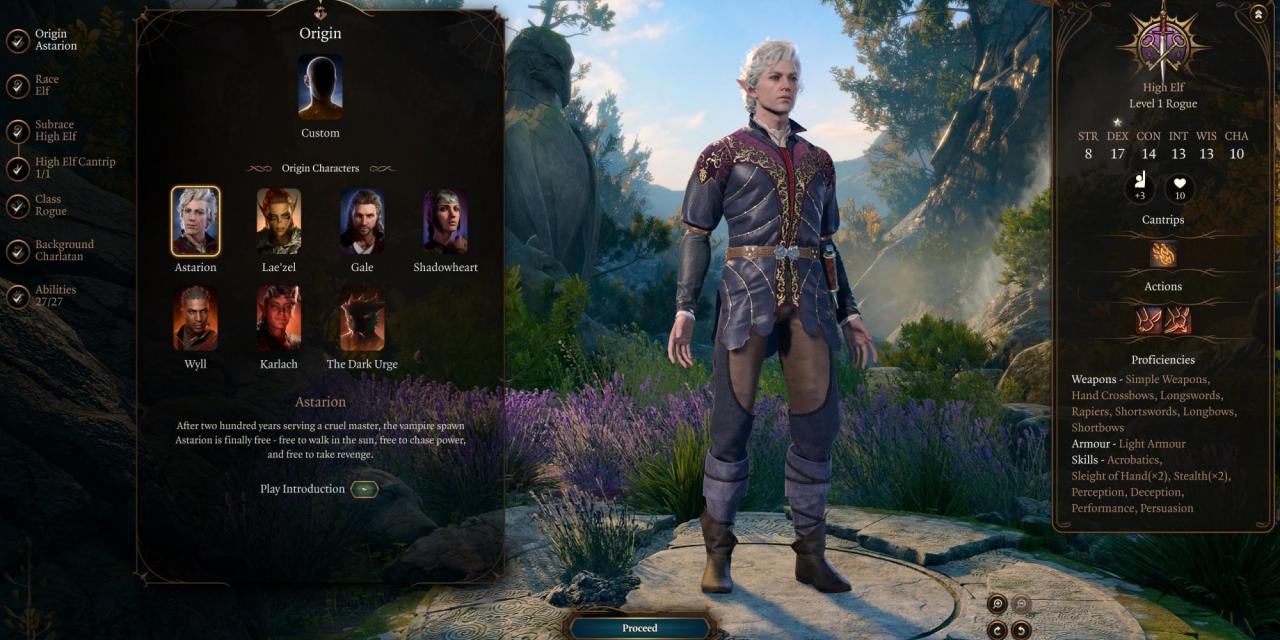
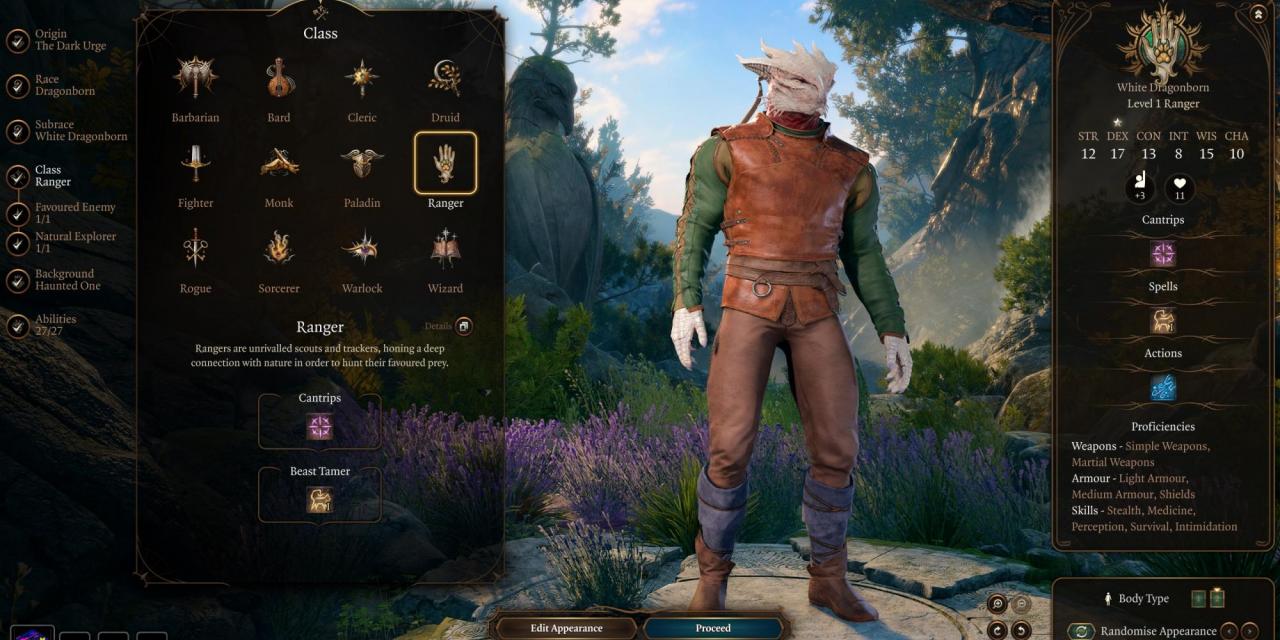
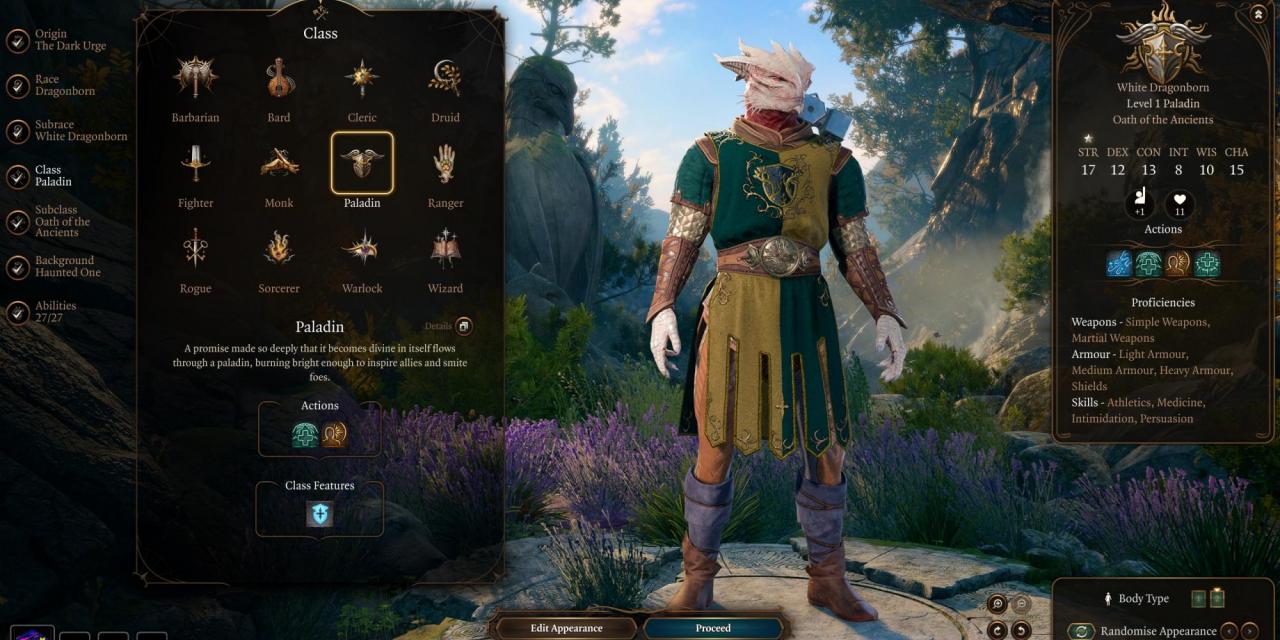

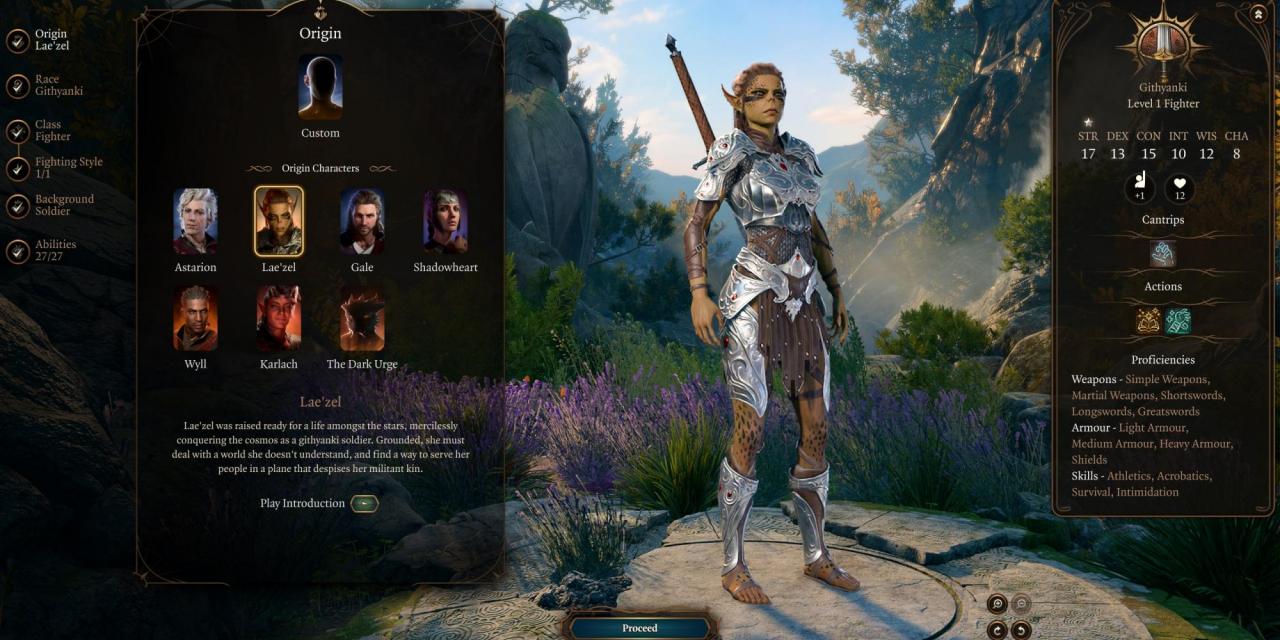
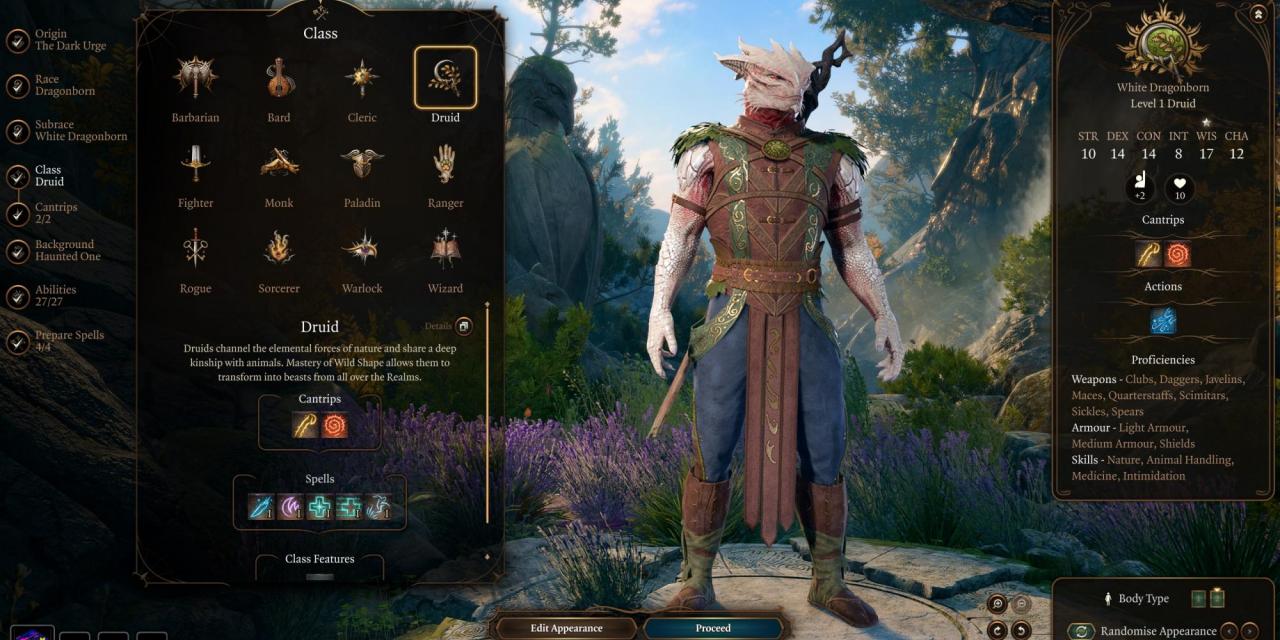
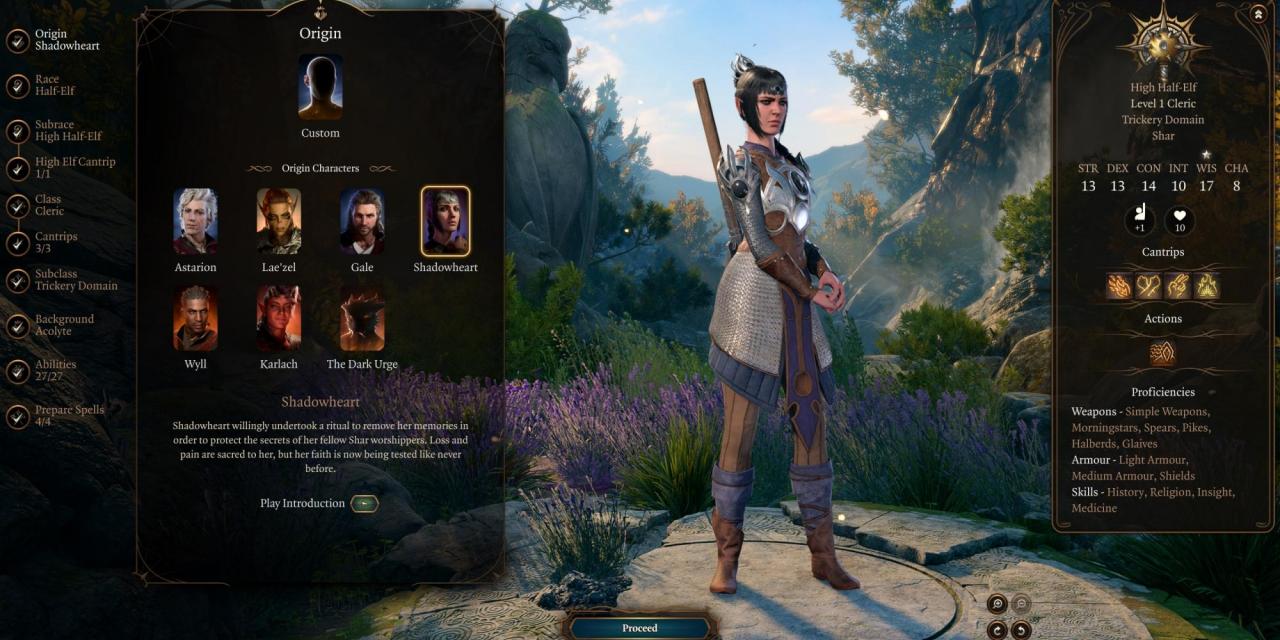
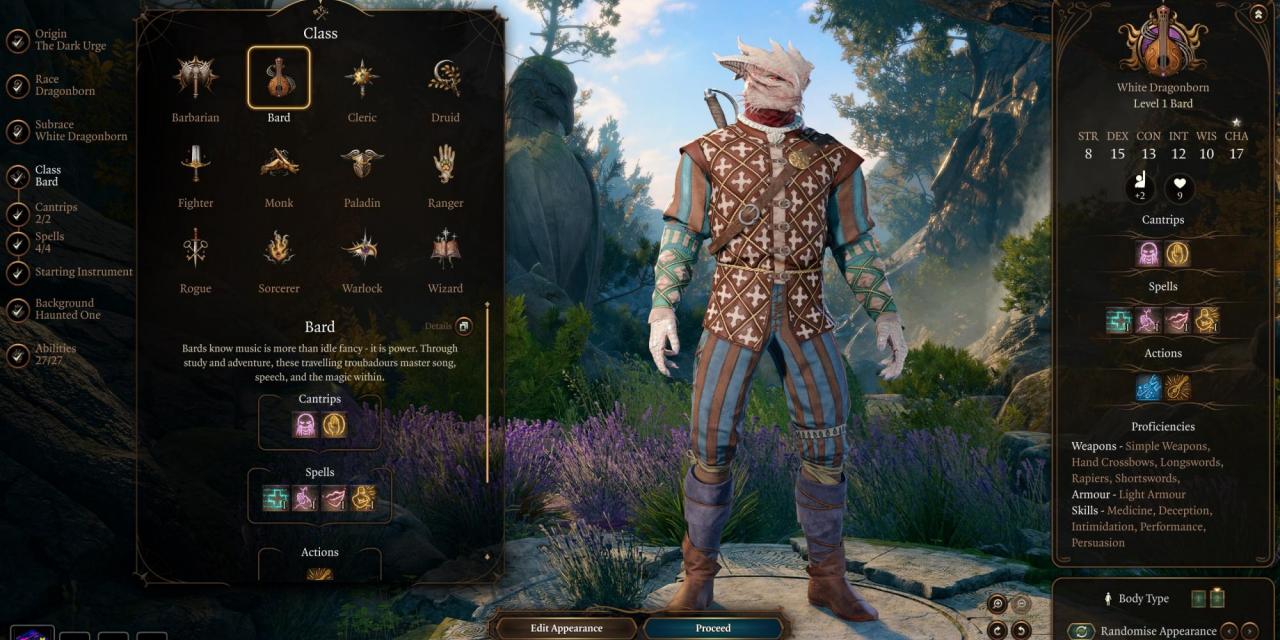
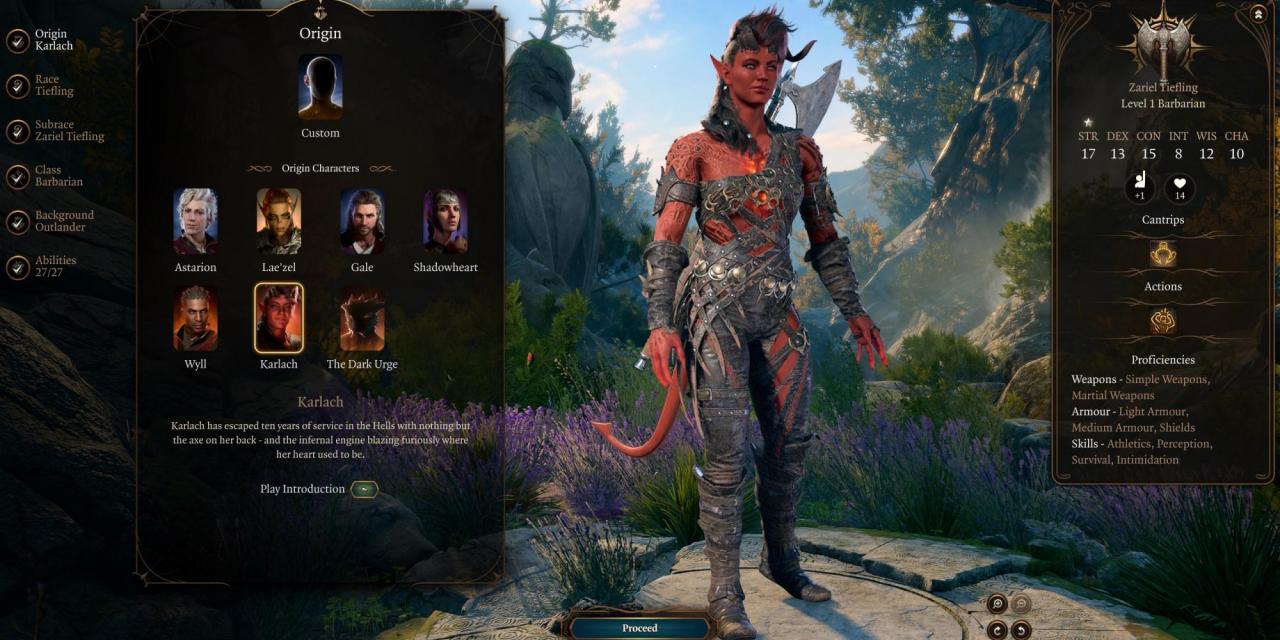
With twelve distinct classes to choose from, in this guide, we'll rank these classes from best to worst, diving into their core abilities, strengths, and weaknesses. Whether you're a seasoned adventurer or a newcomer to the world of Baldur's Gate 3, this detailed breakdown will help you narrow down your choice.
1. Paladin

Paladins are holy warriors bound by sacred oaths to uphold justice, protect the innocent, and punish evildoers. They combine martial combat skills with divine magic, making them versatile frontline fighters.
Core Abilities:
- Lay on Hands: Healing touch that restores hit points.
- Divine Smite: Channels divine energy to deal extra damage to foes.
- Aura of Protection: Grants a bonus to saving throws for the Paladin and nearby allies.
Pros:
- Versatile in combat with both melee and spells.
- High durability with heavy armor and shields.
- Strong support and healing abilities.
Cons:
- Limited spell slots.
- Potential penalties for breaking their oath.
2. Fighter

Fighters are masters of weaponry and combat tactics. They are highly trained in the use of various weapons and armor, making them adaptable to any combat situation.
Core Abilities:
- Second Wind: Self-heal for a small amount of hit points.
- Action Surge: Allows an extra action in combat, doubling their offensive capability.
- Fighting Style: Specializes in specific combat techniques, such as archery or dueling.
Pros:
- High customization with different fighting styles.
- Durable with access to heavy armor and shields.
- Consistent damage output.
Cons:
- No innate spellcasting abilities.
- Straightforward playstyle might feel basic.
3. Cleric

Clerics are divine spellcasters who serve their deities by wielding holy magic to heal, support, and fight. Their magic is versatile, making them capable healers and formidable combatants.
Core Abilities:
- Channel Divinity: Special abilities granted by their deity, such as turning undead or divine healing.
- Spellcasting: Access to a wide range of spells, including healing, buffs, and offensive spells.
- Divine Domains: Each domain (such as Life, Light, War) grants unique abilities and spells.
Pros:
- Strong healing and support capabilities.
- Versatile spell list.
- Durable with medium to heavy armor.
Cons:
- Requires careful spell slot management.
- May not excel as much in pure melee combat.
4. Wizard

Wizards are the ultimate spellcasters, wielding a vast array of spells through rigorous study and practice. They can control the battlefield, deal massive damage, and provide utility.
Core Abilities:
- Arcane Recovery: Regain some spell slots during a short rest.
- Spellbook: Can learn and prepare a vast number of spells.
- Specializations: Choose a school of magic (Evocation, Necromancy, etc.) for additional abilities.
Pros:
- Largest spell selection in the game.
- High damage potential with spells.
- Versatile with spells for many situations.
Cons:
- Very fragile with low hit points and armor.
- Requires careful spell management and positioning.
5. Monk

Monks are martial artists who use their physical prowess and inner ki to perform extraordinary feats. They are highly mobile and capable of rapid, powerful strikes.
Core Abilities:
- Martial Arts: Enhanced unarmed strikes and increased attack speed.
- Ki Points: Powers special abilities like Flurry of Blows, Patient Defense, and Step of the Wind.
- Unarmored Defense: High AC without wearing armor.
Pros:
- High mobility and agility.
- Self-sufficient with abilities like self-healing.
- Strong in both offense and defense.
Cons:
- Limited ki points require careful management.
- Relies on lighter armor and weapons.
6. Warlock

Warlocks make pacts with powerful entities to gain their magical abilities. They are versatile spellcasters with unique features granted by their patrons.
Core Abilities:
- Eldritch Blast: A powerful, repeatable cantrip.
- Pact Magic: Regains spell slots on a short rest, allowing more frequent casting.
- Invocations: Customizable abilities that enhance their capabilities.
Pros:
- Frequent spellcasting due to short rest recovery.
- Powerful cantrips and unique abilities.
- High damage potential with Eldritch Blast.
Cons:
- Fewer spell slots compared to other casters.
- Abilities tied to their pact, which can be limiting.
7. Sorcerer

Sorcerers possess innate magical abilities, allowing them to cast spells with flair and spontaneity. Their magic comes from their bloodline or innate power, not from study.
Core Abilities:
- Metamagic: Modify spells to suit different situations (e.g., extend duration, increase range).
- Sorcery Points: Flexible resource to enhance spells or convert to spell slots.
- Spellcasting: Spontaneous casting without preparation.
Pros:
- Highly flexible with Metamagic options.
- High Charisma for social interactions and spellcasting.
- Spontaneous spellcasting allows quick adaptability.
Cons:
- Limited number of spells known.
- Fragile with low hit points and armor.
8. Bard

Bards are versatile performers who use music and magic to inspire allies and confound enemies. They are jack-of-all-trades, capable of filling multiple roles.
Core Abilities:
- Bardic Inspiration: Boosts allies’ abilities with a bonus die.
- Spellcasting: Access to a variety of support, healing, and offensive spells.
- Expertise: Doubles proficiency bonus for selected skills.
Pros:
- Highly versatile with spells and skills.
- Strong support abilities with Bardic Inspiration.
- Can excel in social situations.
Cons:
- Not as specialized in combat or magic as other classes.
- Limited spell slots compared to primary casters.
9. Barbarian
Barbarians are fierce warriors who harness their primal rage to become nearly unstoppable in battle. They are strong, resilient, and excel in melee combat.

Core Abilities:
- Rage: Grants bonus damage and resistance to damage.
- Unarmored Defense: High AC without wearing heavy armor.
- Reckless Attack: Grants advantage on attack rolls at the cost of defense.
Pros:
- High durability with damage resistance during rage.
- Simple and effective in melee combat.
- High mobility with fast movement.
Cons:
- Limited versatility outside of combat.
- Rage has limited uses per day.
10. Ranger

Rangers are skilled hunters and trackers, adept at surviving in the wild and striking from a distance. They combine combat prowess with nature-based magic.
Core Abilities:
- Favored Enemy: Bonuses against specific types of creatures.
- Spellcasting: Access to nature-based spells.
- Fighting Style: Specializes in archery, two-weapon fighting, etc.
Pros:
- Versatile in both melee and ranged combat.
- Spellcasting adds utility and support.
- Favored Enemy and Natural Explorer enhance exploration and combat.
Cons:
- Middle ground between Fighters and spellcasters.
- Some abilities are situational.
11. Rogue

Rogues are stealthy and cunning, specializing in dealing high burst damage from the shadows. They excel at avoiding danger and taking down enemies quickly.
Core Abilities:
- Sneak Attack: Deals extra damage when attacking with advantage or when an ally is nearby.
- Cunning Action: Allows bonus actions to dash, disengage, or hide.
- Evasion: Reduces or avoids damage from area effects.
Pros:
- High burst damage potential with Sneak Attack.
- Excellent mobility and stealth capabilities.
- Proficient in many skills, making them versatile.
Cons:
- Fragile with low hit points and armor.
- Less effective in prolonged combat.
12. Druid

Druids are nature spellcasters with the ability to shape-shift into various animal forms. They are versatile, capable of healing, dealing damage, and controlling the battlefield.
Core Abilities:
- Wild Shape: Transform into animals for combat, utility, and exploration.
- Spellcasting: Access to a wide range of nature-based spells.
- Druid Circles: Specialize in different aspects of nature, such as Circle of the Land or Circle of the Moon.
Pros:
- Highly versatile with shape-shifting and spellcasting.
- Strong healing and support capabilities.
- Adaptable to various roles in combat.
Cons:
- Requires careful management of spell slots and wild shapes.
- Not as specialized as other spellcasters.




